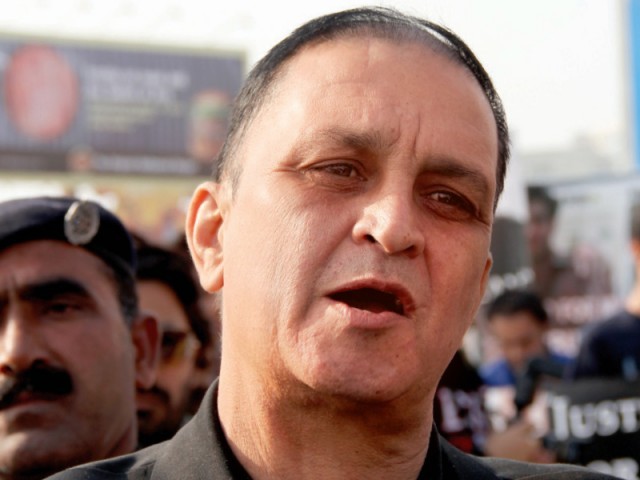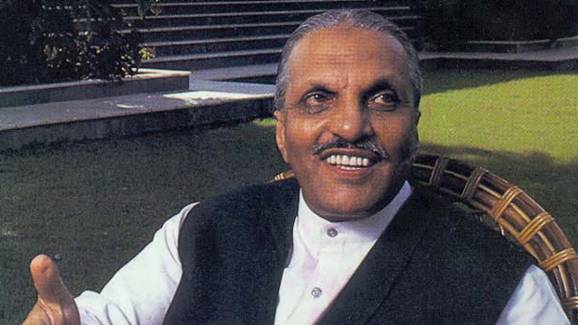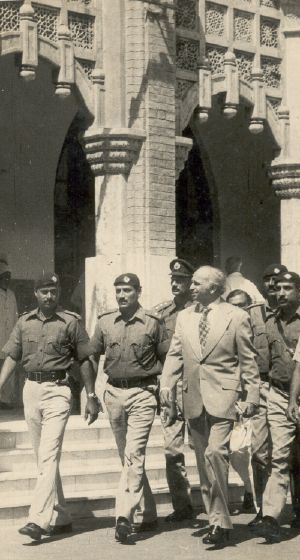Kill, Pay and Run
By Ayesha Siddiqa | Newsbeat | Published 12 years ago
 The Supreme Court recently objected to the settlement of the Shahzeb Khan murder case by Aurangzeb Khan, the father of the deceased, under the law of Qisas and Diyat. The former police officer used his right to pardon Shahrukh Jatoi, the killer of his son, under the Islamic law, although it is not clear if any money exchanged hands, as is being alleged. The Supreme Court is of the opinion that the law, which allows a citizen to pardon another for murder, should be applied judiciously. Interestingly, the same court did not take exception to the application of the Qisas and Diyat law in the Sarfaraz Shah case, in which a young man was killed at Quaid-e-Azam’s mausoleum in Karachi. The issue here is not that the chief justice is wrong in questioning the controversial law, but that he is only willing to apply it in selective cases. There is no doubt about the fact that Shahrukh Jatoi should not be allowed to get away with the murder of an innocent young man. However, selective application of an existing law is not the answer. The Qisas and Diyat law must be revoked forever so that the state is able to shoulder its responsibility of punishing those that take the lives of its citizens.
The Supreme Court recently objected to the settlement of the Shahzeb Khan murder case by Aurangzeb Khan, the father of the deceased, under the law of Qisas and Diyat. The former police officer used his right to pardon Shahrukh Jatoi, the killer of his son, under the Islamic law, although it is not clear if any money exchanged hands, as is being alleged. The Supreme Court is of the opinion that the law, which allows a citizen to pardon another for murder, should be applied judiciously. Interestingly, the same court did not take exception to the application of the Qisas and Diyat law in the Sarfaraz Shah case, in which a young man was killed at Quaid-e-Azam’s mausoleum in Karachi. The issue here is not that the chief justice is wrong in questioning the controversial law, but that he is only willing to apply it in selective cases. There is no doubt about the fact that Shahrukh Jatoi should not be allowed to get away with the murder of an innocent young man. However, selective application of an existing law is not the answer. The Qisas and Diyat law must be revoked forever so that the state is able to shoulder its responsibility of punishing those that take the lives of its citizens.
The Qisas and Diyat law dates back to 1997 when it was formally passed by the Nawaz Sharif government. This law allows the heirs of a person who has been killed to pardon the killer for free or by accepting a payment of compensation. The recompense portion pertains to diyat, which can be translated as ‘blood money.’ The other part of the law is qisas, which means ‘an-eye-for-an-eye,’ or just retribution. This rarely gets implemented because the Islamic law of evidence, which is set into motion on such occasions, is a strict law which has conditions that are difficult to meet. For instance, a witness must fulfill the following conditions in order to be eligible as a witness: (a) one who has never been punished for any crime, (b) has always said all his prayers on time, (c) never urinated standing up, (d) never eaten from a market place, (e) never committed any major sin, (f) never committed any sin, and (g) never failed to carry out the obligations prescribed by the Quran and Sunnah. Pakistan’s former Chief Justice Sajjad Ali Shah remarked that even he would not be able to qualify as a witness. Thus, it was easier to use tazeer or diyat to pass judgments.
Such conditions were formulated and codified by the Abbasids, who were also responsible for formulating a Sharia law based on a peculiar interpretation of the Quran and Hadith. Intriguingly, the Abbasids categorised all such acts that had consequences for an individual or a few individuals under Hudood such as adultery, drinking, theft and a few others. But they left issues with wider consequences for peace and stability such as homicide, as a crime to be dealt with by a private person and not be the responsibility of the state.
The concept of diyat or blood money is supposedly drawn from verse 178 of chapter 2 of the Quran. The verses encourage a killer to be pardoned. However, experts also argue that this verse gets modified by verse 33 of chapter 5, which actually makes the state responsible for the victim. In fact, it is argued that pardon cannot save a life, unless given by the state. Even so, it can save the person from death but not other forms of punishments. Another verse, verse 32 of chapter 5, insists that killing a person is like killing the entire humanity, which implies that the killer of a person must be punished. Verse 178 and, later 33, must be seen in the context of the tribal culture of Arabia, where a murder would result in revenge, which would go beyond an ‘eye-for-an-eye.’ The idea of qisas was to limit the punishment to the person committing homicide and not his entire family. Later, the concept of diyat was introduced to discourage the continuity of bloodshed in tribal warfare. However, at no point did this absolve the state of its responsibility to punish a murderer as failure to do this would increase instability in a society.
Despite the verses, there was no standard procedure to punish people for murder. There are many instances, such as the murder of the second caliph Umer, in which his son killed three people instead of just the one, who was directly involved in his father’s murder. In this case, the then new caliph, Usman, paid diyat to the other two killed by Umer’s son out of his own pocket. However, in the case of Usman’s murder, it was Muwaviya and Ayesha who took up the issue instead of the relatives of the caliph, resulting in a civil war. Clearly a law was being formulated in which, on several occasions, the state did not leave the matter of retribution or compensation for murder to an individual. As mentioned earlier, this law was formulated later under the Abbasids.
In Pakistan’s case, the Qisas and Diyat law was a gift of the Zia years. The history of how it evolved in the country reflects Zia’s personal bias and of those that surrounded him. The three main characters as far as the Islamisation of laws was concerned were Justices Afzal Cheema, Tanzeel-ur-Rehman and Afzal Zullah, who played a critical role in formulating the draft for the said law, after he was made Chairman of the Council of Islamic Ideology (CII) by Zia-ul-Haq in September 1977. Earlier, Cheema had given an adverse judgment in the Nusrat Bhutto case, arguing that a prime minister who went against religion and committed a crime like murder should be punished. Cheema had the dubious distinction of being selected to the judiciary through manipulation during the Ayub years and had also served as law secretary under Bhutto’s government. Given his radical views, he was popularly known as Ibn Taimiya. Later, Tanzeelur Rehman, who succeeded Cheema as Chairman of CII, played a similar role.
Interestingly, Zia’s Nizam-e-Islam, promulgated in 1977, excluded the Qisas and Diyat law. Dr Tahir Wasti argues in his book that this was so simply because Zia was hellbent on hanging Zulfikar Ali Bhutto and wanted to avoid any possibility of the accused escaping the noose. Under the Islamic laws, Bhutto could not have been sentenced to death as the Qisas and Diyat law is tightly linked to the law of evidence, which does not allow for an approver, as had happened in the Bhutto case.
Bhutto filed a review petition (no 5-R of 1979 on 05/03/1979) asking the Supreme Court to hear his case under Islamic laws. The Supreme Court, however, dismissed the petition on 25/03/1979 arguing that the Islamic laws approved by the government did not include the Qisas and Diyat law. Clearly, the stage was set for Bhutto’s hanging. However, the same law was first introduced as an ordinance after Bhutto’s death.
The caretaker Jatoi government promulgated the ordinance in 1990. Based on evidence, Wasti argues that Jatoi was pressured by the then president, Ghulam Ishaq Khan, to do so to make Justice Afzal Zullah happy. It finally became a law in April 1997, under the second Sharif government.
The law represents nothing but a travesty of justice and indicates corruption of the legal system in two ways. First, as argued by Benazir Bhutto’s law minister the (late) Iqbal Haider, during her first government, the law was indicative of the greed of the legal fraternity. Haider was quizzed on the floor of the Parliament on why the legal community did not object to such a law. His reluctant response was that this was due to the laziness and greed of the lawyers. They receive huge fees in criminal cases, which then get resolved under the diyat law without the lawyers having to work hard in arguing the case.
 Interestingly, Zia’s Nizam-e-Islam, promulgated in 1977, excluded the Qisas and Diyat law. Dr Tahir Wasti argues in his book that this was so simply because Zia was hellbent on hanging Zulfikar Ali Bhutto and wanted to avoid any possibility of the accused escaping the noose. Under the Islamic laws, Bhutto could not have been sentenced to death as the Qisas and Diyat law is tightly linked to the law of evidence, which does not allow for an approver, as had happened in the Bhutto case.
Interestingly, Zia’s Nizam-e-Islam, promulgated in 1977, excluded the Qisas and Diyat law. Dr Tahir Wasti argues in his book that this was so simply because Zia was hellbent on hanging Zulfikar Ali Bhutto and wanted to avoid any possibility of the accused escaping the noose. Under the Islamic laws, Bhutto could not have been sentenced to death as the Qisas and Diyat law is tightly linked to the law of evidence, which does not allow for an approver, as had happened in the Bhutto case.
 Secondly, this law indicates the collusion between the legal fraternity and the ruling elite, who tend to commit crimes such as homicide and then pay off the victim’s families. In fact, one of the reasons why such a hue and cry has been raised by certain segments of the society is because the Qisas and Diyat law goes hand in hand with the tradition of honour killing. In the absence of the diyat law, it would not have not been possible for people to compensate or pay off victim’s families. The judiciary is equally culpable in strengthening this law because there are cases after cases in which judges have allowed for monetary compensation and, in many instances, females were the victims. A glance through the extensive case law cited by Tahir Wasti in his seminal work, ‘The Application of Islamic Criminal Law in Pakistan,’ is a hair-raising experience as he has given examples which would rationally appear as nothing but injustice.
Secondly, this law indicates the collusion between the legal fraternity and the ruling elite, who tend to commit crimes such as homicide and then pay off the victim’s families. In fact, one of the reasons why such a hue and cry has been raised by certain segments of the society is because the Qisas and Diyat law goes hand in hand with the tradition of honour killing. In the absence of the diyat law, it would not have not been possible for people to compensate or pay off victim’s families. The judiciary is equally culpable in strengthening this law because there are cases after cases in which judges have allowed for monetary compensation and, in many instances, females were the victims. A glance through the extensive case law cited by Tahir Wasti in his seminal work, ‘The Application of Islamic Criminal Law in Pakistan,’ is a hair-raising experience as he has given examples which would rationally appear as nothing but injustice.
Seen from a broader perspective, the law is against the principle of peace and stability in a society. Ultimately, it creates imbalance in society. A glance through some of the data provided by Tahir Wasti in his book helps understand how this law has a role to play in lowering the conviction rate in murder and terrorism cases in Pakistan. According to available data, the cancellation of murder cases increased from four per cent in 1981 to 11 percent in 2000. Similarly, conviction at trial stage fell from 29 per cent in 1981 to 12 percent in 2000,
If the Quran argues that killing a person is tantamount to killing humanity, then surely it is the responsibility of the state to punish the culprit. This is important for ensuring peace in a society — a responsibility that cannot be relegated to individuals. The fact that the law creates an imbalance was recognised by some Muslim clerics like Maulanas Shirani, Azam Tariq, Siddique Shah and Mohammad Amin, who opposed it at the time of its earlier promulgation. However, one wonders if a person like Maulana Shirani would raise his voice against it, now that he is Chairman of the CII.
Nonetheless, a law which denotes gross injustice, has to go.
The writer is an independent social scientist and author of Military Inc. She tweets @iamthedrifter


